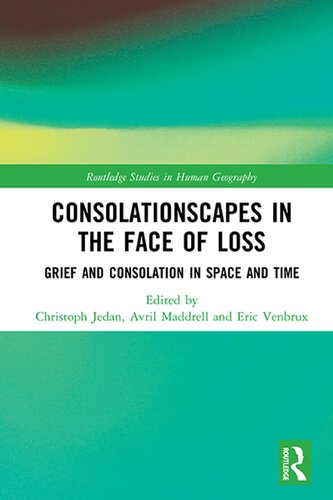

Most ebook files are in PDF format, so you can easily read them using various software such as Foxit Reader or directly on the Google Chrome browser.
Some ebook files are released by publishers in other formats such as .awz, .mobi, .epub, .fb2, etc. You may need to install specific software to read these formats on mobile/PC, such as Calibre.
Please read the tutorial at this link: https://ebookbell.com/faq
We offer FREE conversion to the popular formats you request; however, this may take some time. Therefore, right after payment, please email us, and we will try to provide the service as quickly as possible.
For some exceptional file formats or broken links (if any), please refrain from opening any disputes. Instead, email us first, and we will try to assist within a maximum of 6 hours.
EbookBell Team

4.3
18 reviewsHuman beings are grieving animals. ‘Consolation’, or an attempt to assuage grief, is an age-old response to loss which has various expressions in different cultural contexts. Over the past century, consolation has dropped off the West’s cultural radar. The contributions to this volume highlight this neglect of consolation in popular and academic discourses and explore the usefulness of the concept of consolation for analysing spatio-temporal constellations.
Consolationscapes in the Face of Loss brings together scholars from geography, philosophy, history, anthropology and religious studies. The chapters use spatial and conceptual mappings of grief and consolation to analyse a range of spaces and phenomena around grief, bereavement and remembrance, comfort and resilience, including battlefield memorials, crematoria, graveyards and natural burial sites in Europe. Authors shift the discussion beyond the Global North by including responses to traumatic grief in post-conflict African societies, as well as Australian Aboriginal traditions of ritual consolation.
The book focuses on the relationship between space/place and consolation. In so doing, it offers a new lens for research on death, grief and bereavement. It offers new insights for students and researchers interrogating contemporary bereavement, as well as those interested in meaning-making, emerging socio-cultural practices and their role in personal and collective resilience.